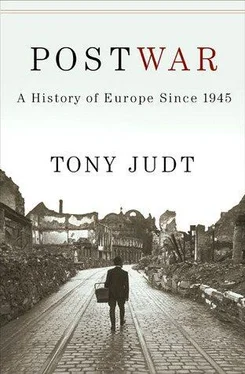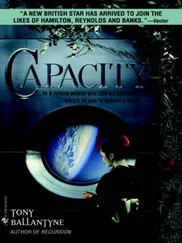If Germany—to pursue the Voltairian image a little further—was the country that ‘knew’ Europe best, it was appropriate that at the beginning of the twenty-first century two other former imperial states should have been most insistently seeking to be ‘known’ by it. Like Germany, Russia and Turkey had once played an imperial role in European affairs. And many Russians and Turks had shared the uncomfortable fate of Europe’s ethnic German communities: displaced heirs of an autocratic power now reduced to resented and vulnerable minorities in someone else’s nation state, the tidal refuse of imperial retreat. In the late 1990s it was estimated that more than one hundred million Russians lived outside of Russia in the independent countries of eastern Europe. [396]
But there the resemblance ended. Post-Soviet Russia was a Eurasian empire rather than a European state. Preoccupied with violent rebellions in the Caucasus, it was maintained at a distance from the rest of Europe by the new buffer states of Belarus, Ukraine and Moldova as well as by its own increasingly illiberal domestic politics. There was no question of Russia joining the EU: new entrants, as we have seen, were required to conform to ‘European values’—with respect to the rule of law, civic rights and freedoms and institutional transparency—that Vladimir Putin’s Moscow was very far from acknowledging, much less implementing. [397]In any event, Russian authorities were more interested in building pipelines and selling gas to the EU than in joining it. Many Russians, including residents of the western cities, did not instinctively think of themselves as Europeans: when they traveled west they spoke (like the English) of ‘going to Europe’.
Nevertheless, Russia had been a ‘hands-on’ European power for three hundred years and the legacy remained. Latvian banks were the target of takeovers by Russian businessmen. A Lithuanian president, Rolandas Paksas, was forced out of office in 2003 under suspicion of close links with the Russian mafia. Moscow retained its Baltic enclave around Kaliningrad and continued to demand unrestricted transit (through Lithuania) for Russian freight and military traffic, as well as visa-free travel for Russian citizens visiting the EU. Laundered cash from the business undertakings of Russian oligarchs was funnelled through the property market in London and the French Riviera.
In the short run, Russia was thus a decidedly uncomfortable presence on Europe’s outer edge. But it was not a threat. The Russian military was otherwise engaged and anyway in dilapidated condition. The health of the Russian population was a matter of serious concern—life expectancy for men especially was falling precipitately and international agencies had for some time been warning that the country had seen a revival of tuberculosis and was on the verge of an AIDS epidemic—but this was primarily a source of concern for Russians themselves. For the immediate future Russia was decidedly preoccupied with its own affairs.
In the longer run, the simple fact of Russia’s proximity, its sheer size and unmatched fossil-fuel reserves, must inevitably cast a shadow on the future of an energy-poor European continent. Already in 2004, half of Poland’s natural gas and 95 percent of its oil came from Russia. But in the meantime what the Russian authorities and individual Russians were seeking from Europe was ‘respect’. Moscow wished to be more intimately involved in intra-European decision making, whether in NATO, in the administration of Balkan settlements, or in trade agreements (both bilateral and through the World Trade Organization): not because decisions taken in Russia’s absence would necessarily be prejudicial to its interests but as a point of principle.
European history, it seemed to many observers, had come full circle. As in the 18th century so in the 21st: Russia was both in Europe and outside it, Montesquieu’s ‘nation d’Europe’ and Gibbon’s ‘Scythian wilderness’. For Russians, the European West remained what it had been for centuries, a contradictory object of attraction and repulsion, of admiration and ressentiment . Russia’s rulers and people alike remained markedly sensitive to outside opinion while evincing deep suspicion of all foreign criticism or interference. History and geography had bequeathed to Europeans a neighbour they could neither ignore nor accommodate.
The same might once have been said of Turkey. For nearly seven hundred years the Ottoman Turks had been Europe’s ‘other’, supplanting the Arabs who had occupied the role for the previous half millennium. For many centuries ‘Europe’ began where the Turks ended (which was why Cioran was so depressed to be reminded of Romania’s long years under Ottoman rule); and it was commonplace to speak of Christian Europe being periodically ‘saved’—whether at the gates of Vienna, or Budapest, or at the 1571 Battle of Lepanto—from the jaws of Turkish Islam. From the mid-eighteenth century, as Ottoman Turkey slipped into decline, the ‘Eastern Question’—how to manage the Ottoman Empire’s decline and what to do with the territories now emerging from centuries of Turkish rule—was the most pressing challenge facing European diplomats.
Turkey’s defeat in World War I, the overthrow of the Ottomans, and their replacement by Kemal Ataturk’s ostentatiously secular, modernizing state, had taken the Eastern Question off the European agenda. Now governed from Ankara, the Turks had troubles enough of their own; and although their removal from the Balkans and the Arab Middle East had bequeathed a tangled web of conflicts and choices with momentous long-term consequences for Europe and the world, the Turks themselves were no longer part of the problem. Had it not been for Turkey’s strategic location athwart the Soviet Union’s sea route to the Mediterranean, the country might well have disappeared altogether from Western consciousness.
Instead, Ankara became for the duration of the Cold War an accommodating participant in the Western alliance, contributing to NATO a rather significant contingent of soldiers. American missiles and bases were established in Turkey as part of the cordon sanitaire ringing the Soviet frontiers from Baltic to Pacific, and Western governments not only furnished Turkey with copious sums in aid but looked benevolently and uncritically upon its unstable dictatorial regimes—often the outcome of military coups—and their unrestrained abuse of minority rights (notably those of the Kurds in the country’s far east, one fifth of the total population). Meanwhile, Turkish ‘guest workers’, like the rest of the Mediterranean basin’s surplus rural population, migrated in large numbers to Germany and other Western European lands in search of jobs.
But the Ottoman legacy would return to haunt the new Europe. With the end of the Cold War, Turkey’s distinctive location took on a different significance. The country was no longer a frontier outpost and barrier state in an international geopolitical confrontation. Instead it was now a conduit, caught between Europe and Asia, with ties and affinities in both directions. Although Turkey was formally a secular republic, most of its seventy million citizens were Muslims. Many older Turks were not especially orthodox, but with the rise of radical Islam there were growing fears that even Ataturk’s ruthlessly imposed secular state might prove vulnerable to a new generation rebelling against their secularized parents and looking for roots in an older heritage of Ottoman Islam.
But Turkey’s educated professional and business elites were disproportionately located in the European city of Istanbul and identified enthusiastically with Western dress, culture and practices. Like other ambitious eastern Europeans they saw Europe—European values, European institutions, European markets and careers—as the only possible future for them and their ambivalently situated country. Their goal was clear: to escape out of history and into ‘Europe’. Moreover, this was one objective they shared with the traditionally influential officer corps, who identified wholeheartedly with Ataturk’s dream of a secular state and expressed open irritation at creeping Islamisation in Turkish public life.
Читать дальше












